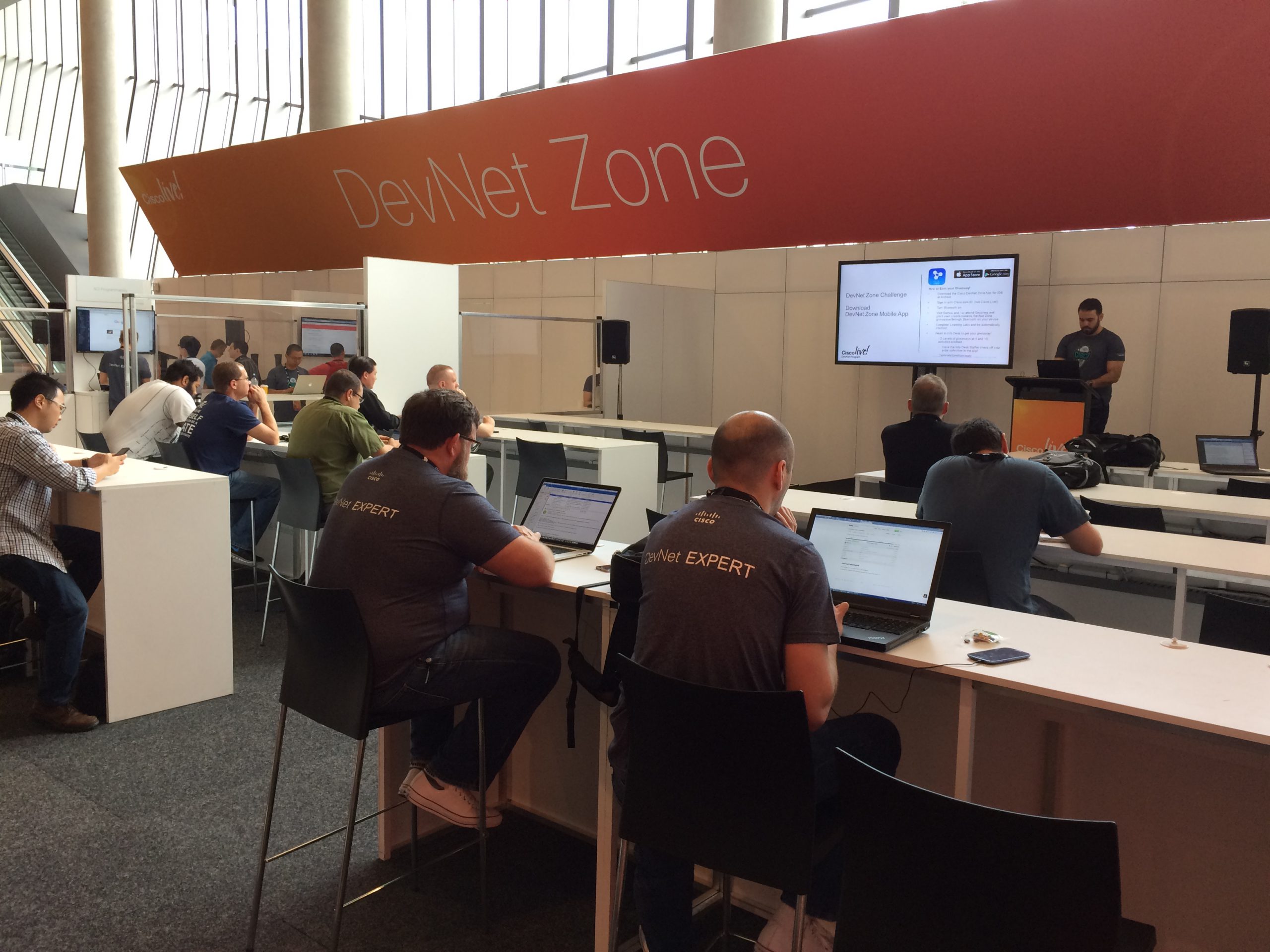Having to miss last years edition I was fortunate enough to be able to attend this years CiscoLive! conference in my hometown Melbourne again. Venue was excellent as usual. MCEC provides perfect facilities and is in the heart of the city so no dramas here.
The opening keynote already showed to direction where Cisco has steered the ship. Datacentre agility to cope with the ever increasing demand for business flexibility and be able to adapt quickly to changes in market conditions.
Cisco is acknowledging that it needs to adjust their products and services portfolio in such a way business can still use its entire catalog but by opening up the methodologies in which these products are used it gives more control and choice to the people who have to design, implement and operate these infrastructures. This way they don’t need to align their internal processes to the ever more diverse product-set but the other way around.
One example is NX-OS. The operating system running the core of Cisco’s networking products. With the introduction of NX-OS 7 on the Nexus 7000 and the new 9000, the operating system has “rebranded” itself to “Open NX-OS”. This doesn’t mean Cisco has put the source on Github but it gives a more accessible method of interacting with the switches, or any other supported platform for that matter. By providing a rich REST-full API it’s easy to create programs, tools and scripts which can automate deployment and day-to-day operations.
Evidence of this is the fact that Cisco had set up an entire track for developers in the form of a, so called “DevNet zone”. An area at the conference where developers, or anyone interested, could learn more about developing scripts and tools to better interact with the wide portfolio Cisco has. This was not only restricted to the conference. Cisco has ramped up a large online devnet area including a impressive sandbox where developers can test and validate their programs towards the majority of Cisco technology. As you may have seen this is not new and the methodology is more or less adopted from the OpenSource communities around the worlds where this has been created. Distributed development of software by coding, peer review, testing, building and deploying has been done for over two decades and even long before that in the educational institutions.
A lot of Cisco teams and individuals contribute in the form of code, documentation, examples and a myriad of hints and tips to get you started.
Obviously Cisco is no philanthropic organization so don’t expect any non-cisco technologies to be covered. Even when you think you see Cisco’s involvement in a non-cisco product or code, like for example OpenStack, a lot of code is contributed in the form of Cisco enablement in that product. No problem here, all vendors do that and it increases the usability and experience of the overall product.
I must applaud Cisco for embracing the way IT is used these days and give customers more control in the way they want to use Cisco products. This really is the way forward and all vendors should adopt this methodology and provide resources in the form of knowledge, product resources and people. Other companies like EMC with {code} and IBM’s Developerworks provide a similar experience
CiscoLive! 2016 covered a lot more topics like security, wireless, communications etc. etc.
Another great feat was I got to see a few friend again. Dr J Metz finally made it to Australia and David Jansen who’s sessions I always enjoy for its pragmatic approach and technical depth. Great to see you guys again.
All in all another excellent conference where I learned a lot and provide me with a significant bag of information to keep me busy for another year.
Thanks Cisco.
